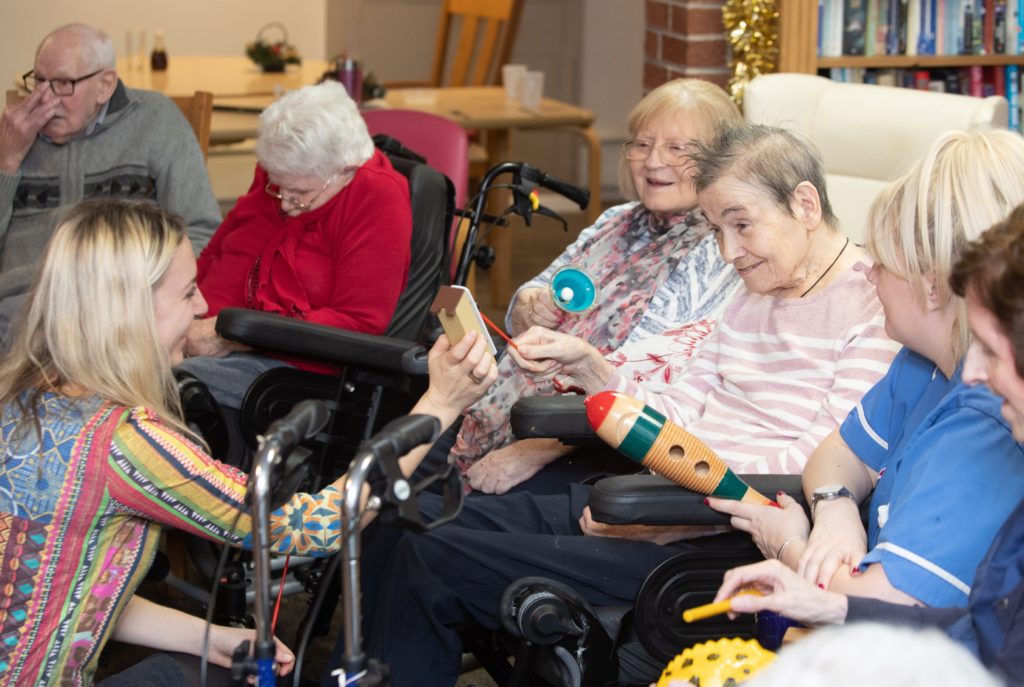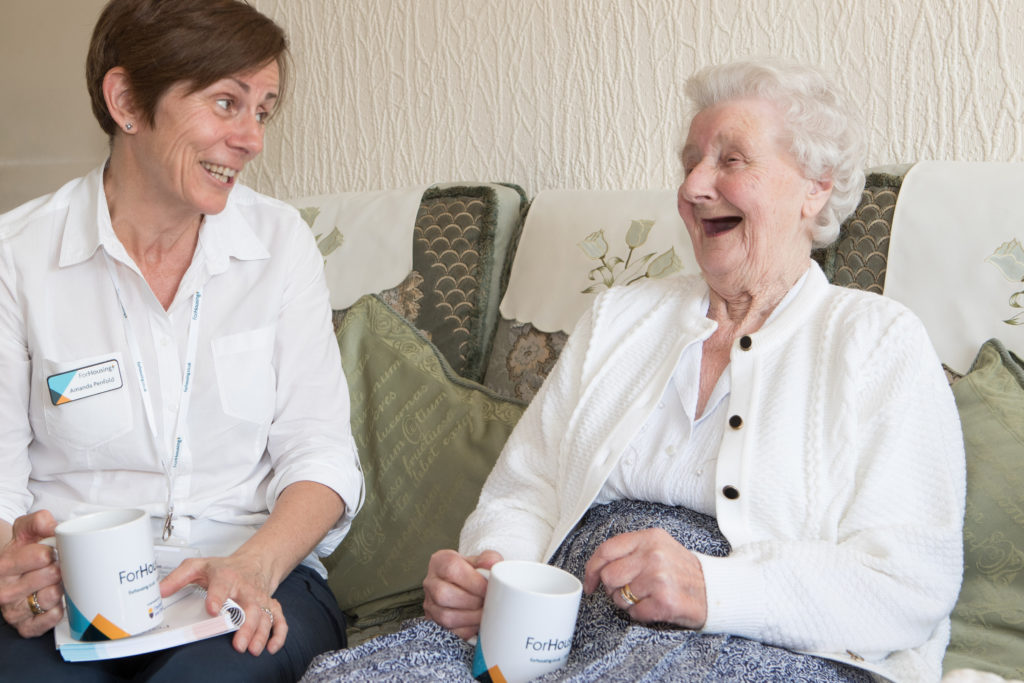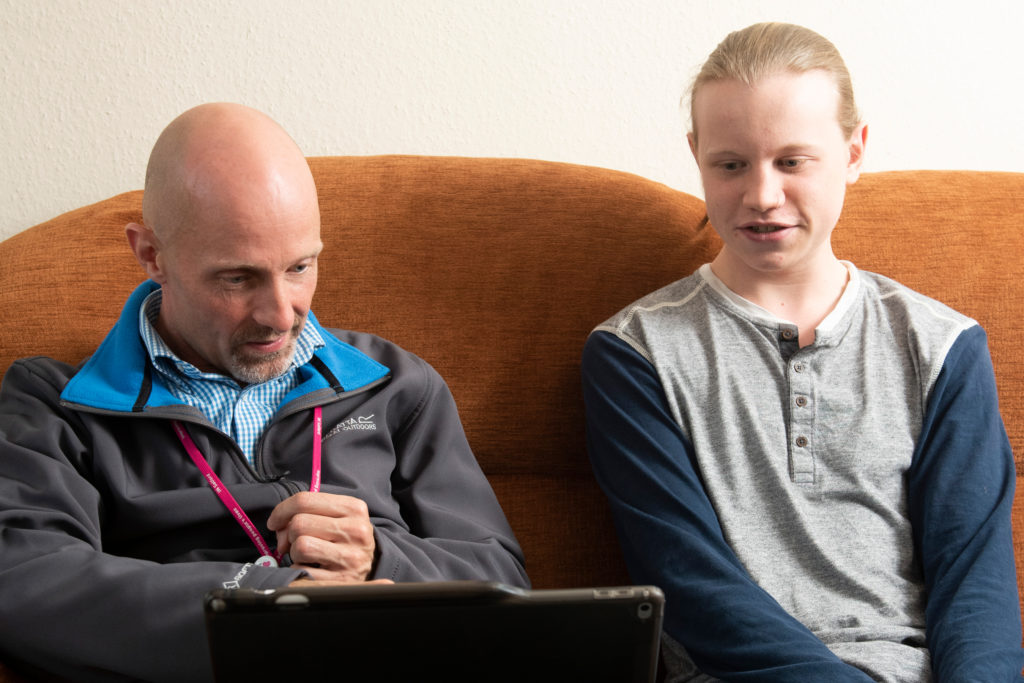Social Heart, Commercial Head: Rethinking Affordable Housing
Nigel Sedman Group Director of Homes, ForVivaA new lens on a housing crisis.
“Social heart, commercial head.” This delicate balance drives everything we do at ForViva to finance and operate affordable housing communities. For us, it’s been an enormously successful approach to one of the most pressing needs of our time. There’s a massive waitlist for affordable housing across the U.K., and while a lot of people here are working, they’re often paid wages too low to rent conventional houses and apartments.
The government offers grants to Housing Associations to develop affordable housing, but they vary with budget cuts, sometimes just relate to affordable home ownership products, and rely on charging a rent that is sometimes not affordable to all. Against this backdrop, it’s also important to remember that some people seeking social housing may also need additional help to truly thrive: local physical or mental health services, money advice, job training, etc. There are plenty of affordable housing organizations in the U.K., but many are unable to tackle the underlying challenges residents face.
“There are plenty of affordable housing organizations in the U.K., but many are unable to tackle the underlying challenges residents face.”
To solve precisely these problems, ForViva changed course in 2016. We combined ForHousing, a social purpose vehicle, and Liberty, a prominent construction company. This partnership made our “social heart, commercial head” business model possible; we now offer attractive, upscale rentals in sought-after areas and use those profits to finance affordable housing communities (coupled with critical support services). In sharing the fine print — and powerful results — of our strategy, I’m hopeful others in real estate will begin to feel affordable development is within their reach, too.
How to afford affordable housing?
Over the last 50 years, social housing has been increasingly stigmatized across the U.K., and this trend is reflected in previous government funding when these budgets saw major cuts. Thus, ForViva sensed from the beginning that we had to be as self-reliant as possible in the realm of funding.
Fortunately, our commercial lens on affordable housing has paid off. We build properties and sell them for outright sale, as well as offer high-end rentals in desirable areas across the North West U.K. Then, we transfer the profits from these successful commercial projects into our range of social housing schemes and tenures.
All told, our revenue breaks down approximately to 60% rents and 40% contracting work through Liberty, our construction branch. Above all, we work hard to get more money and value from everything we do commercially so that we can deliver on our social mission. Few non-profits think this way. Yet, we believe we can serve our tenants and communities best by maintaining this commercial mindset.
Before we do anything, we identify the outcomes we want to achieve, ensuring everything is channeled in the direction that meets revenue goals most efficiently. Instead of saying, “that sounds like a good idea,” we always work through the objectives with a critical eye before we act. By holding ourselves to this tough standard of goal-setting, our teams can best focus their efforts toward serving our social cause.
“Above all, we work hard to get more money and value from everything we do commercially, so that we can deliver on our social mission.”
Ultimately, our work building social housing informs the way we market our commercial offerings. While we don’t actively publicize when we market properties that we are part of a group containing a housing association, we do subtly hint that this arm is part of a larger group with significant resources and skills and our profits “don’t go to shareholders” — and instead support services that “help people in need.”
In the end, urban renters with a powerful social conscience like being able to provide housing to those in need who can neither buy nor rent. As a strategy and a value, it has a lot of strength. Most importantly, that sense of compassion from our commercial renters provides the funding we need to provide social housing people feel proud to call home.
Pride hinges on more than housing.
Needless to say, many housing associations simply stop at providing housing. At ForViva, we’re in some of the most challenging areas in the UK, but we work efficiently to get homes into a quality condition and simultaneously think about the additional factors that will lead to improving people’s well-being.
To that end, we have a strong community impact structure through our Wellbeing Strategy, with every piece and activity linked to the well-being of residents. We have a health program that makes sure residents have good advice about their overall nutrition and wellness. We also have employment training and a schools program to give young people a supportive setting they may be lacking at home so that they can ultimately achieve their potential.


We offer quality rental properties but see all of these additional branches as necessary, too, so that people can have aspirations, so that they can achieve and grow more economically prosperous. When all of these factors come together, people are able to change their sense of self-worth. Then, they start to set goals that previously would never have seemed within reach.
I think our ForFutures program illustrates this story arc in a powerful way. We start by offering a one-bedroom rental apartment to a single young person at risk of facing homelessness. We charge them just 67 pounds a week, which is far less than standard social housing in the U.K. That price and single monthly payment covers all cleaning, bills, wifi, wardrobe, and more.
“We offer quality rental properties but see all of these additional branches as necessary, too, so that people can have aspirations, so that they can achieve...”
This helps our residents who were previously living a chaotic lifestyle possibly on a friend’s couch suddenly have the settled environment they need to develop a support system, to seek and maintain employment. We want them to be able to look polished and professional at interviews, but we don’t think that’s enough; ForViva also hosts a related program where these tenants can receive job application and interview training skills.
So far, we have devoted 40 rental units to this ForFutures program, and they’re all subsidized through our commercial activities. Naturally, we want very much to be able to offer more. In the meantime, I think it’s important to explore the way our unusual work culture makes this and other housing efforts possible at ForViva.
Reaping the benefits of a positive culture.
 Everything we accomplish at ForViva stems from our “four c’s.” They include compliance, customer service, cost, and culture. None of our work could be done without people consistently living up to these values.
Everything we accomplish at ForViva stems from our “four c’s.” They include compliance, customer service, cost, and culture. None of our work could be done without people consistently living up to these values.
When we have a hiring decision to make, we feel that anyone can be trained to develop technical skills but you cannot learn attitude. So, we focus our lens on the candidate’s natural empathy, commitment, and drive, as we believe these are must-haves when you work in social housing.

We’ve met with work culture consultants over the years, but I think the power of ForViva’s model is that it genuinely starts at the top and trickles down. Our Chief Executive Officer, Colette McKune, believes deeply in teamwork, involving staff in decision making, stimulating creativity, and breaking down silos. She never lets teams blame colleagues and her advice is always that we work together.
“...we focus our lens on the candidate’s natural empathy, commitment, and drive, as we believe these are must-haves when you work in social housing.”
As a result, ForViva achieves so much more than other organizations in the world of social housing because our people buy into the vision and collaborate. We don’t even have a desk system. Everyone works near each other and we move a lot to get staff members from different teams mingling and talking.
If we see any finger-pointing, that’s snuffed out immediately. Our values, after all, are about being open and honest. Importantly, ForViva wants these principles to be just as prized at our social housing communities. I’ll turn next to the ways we foster a collaborative culture at each of our properties.
Partners, not parents: our approach to tenants.
ForViva believes there’s tremendous value in ensuring our housing communities are diverse and inclusive. From encountering differing perspectives, our tenants have the chance to learn a great deal. Thus, when ForViva faces challenges of NIMBYism before a development can even get off the ground, we make a strong effort to engage with locals and hear their views, too.
For us, that means hosting a range of community events to ease concerns and share the positive efforts of our housing and social programs. Critically, ForViva tenants help with the design of these neighborhood events, giving us feedback about the topics bound to strike a chord.
This is just one area in which ForViva engages as a partner, never a parent, with the tenants we serve. At the regular housing meetings we host at ForViva properties, we always give residents a chance to be heard and help to co-design services.


We don’t stop at listening to complaints — we act. For example, if a tenant says that there’s a garage site nearby that is attracting anti-social activity, we take that feedback and do something about it decisively and quickly.
We feel it’s very important to show our tenants' results after they go out on a limb to share an area of concern. Above all, we always want to make sure tenants are not wastefully telling us things. So, we deliver. We show them how we’ve used their information to create positive, and ideally lasting, change.
“We feel it’s very important to show our tenants results after they go out on a limb to share an area of concern.”
To keep this kind of open dialogue running smoothly, we make sure our community engagement officers are known at each property. When residents see them walking around and chatting with people, we want them to feel comfortable in raising and discussing any kind of problem related to the property. We want tenants to feel they can always come to us for help and we do something about it.
In the end, there really aren’t many people who choose to leave our properties, because they feel proud of where they live and the support they receive. We want to be their landlord of choice; we always want to provide quality services, even if some of this may come at a cost. For the staff at ForViva, the most rewarding part of our work is seeing these residents rise above tough circumstances and find a sense of purpose. I’m proud to share a few of their stories.
The greatest gift: tenants becoming employees.
Sarah, one of our community engagement officers, started out as a young teen resident living with her mom at one of our social housing properties. She was curious to try out our youth employment program, and the results were powerful. Sarah had such a positive attitude and asked such insightful questions that we hired her as a full-time staff member after she finished school.
Now, Sarah puts her sense of curiosity to good use, working on-site at one of our social housing communities. If anything, she poses a bit of a challenge sometimes to our property surveyors, asking the kinds of questions and demanding behaviour that holds them to a very high standard. But this is precisely what we hire for at ForViva — staff members whose social hearts steer them toward a healthy debate once in a while.
We’re also proud that hundreds of our tenants have gone through ForViva employment training programs to secure positions at Liberty, our contracting firm, and with ForHousing. Many work in jobs fundamental to resident safety, serving as gas engineers or working with communities across our various housing neighbourhood sites across the U.K.
Going from a really difficult situation where they once risked homelessness to having a good quality of life and full-time employment is a really meaningful transition for our residents. My colleagues and I feel truly fulfilled watching what our “social heart, commercial head” model makes possible for people.